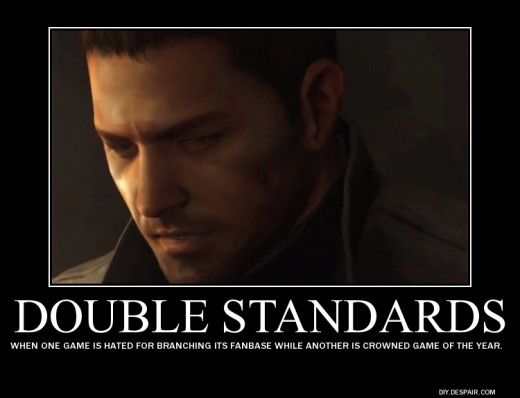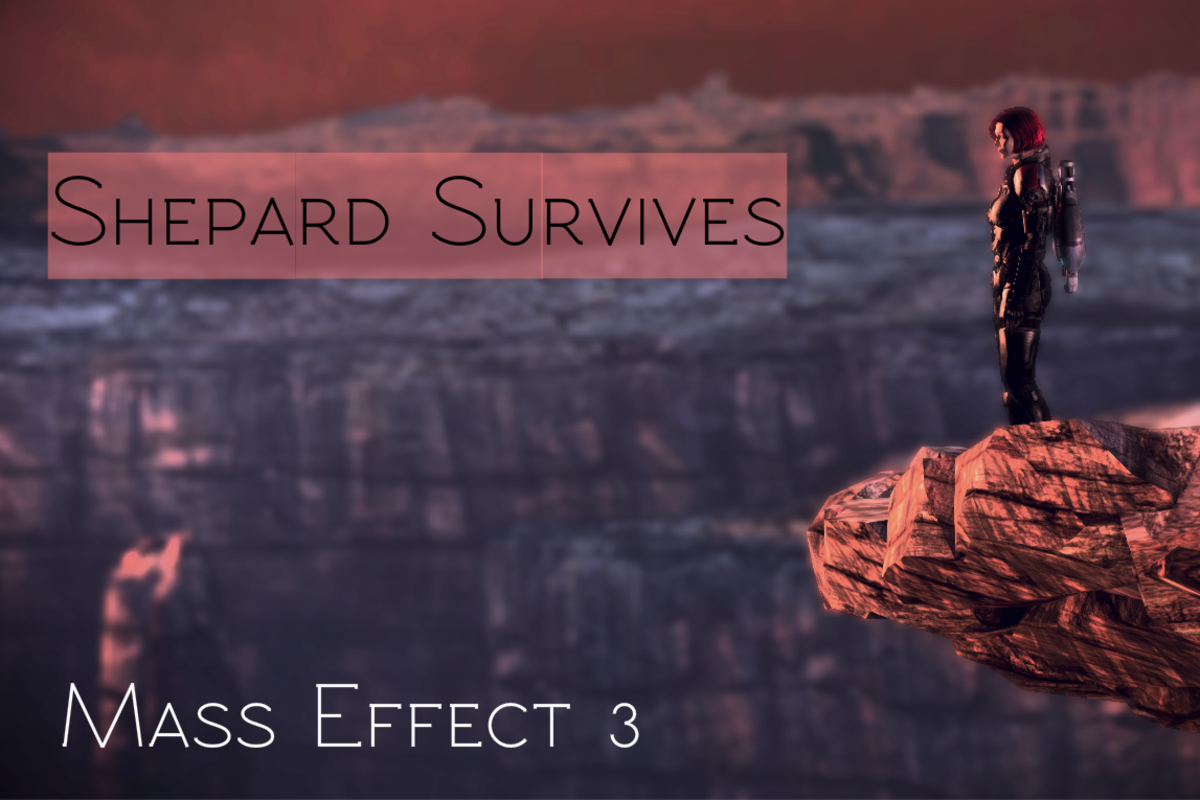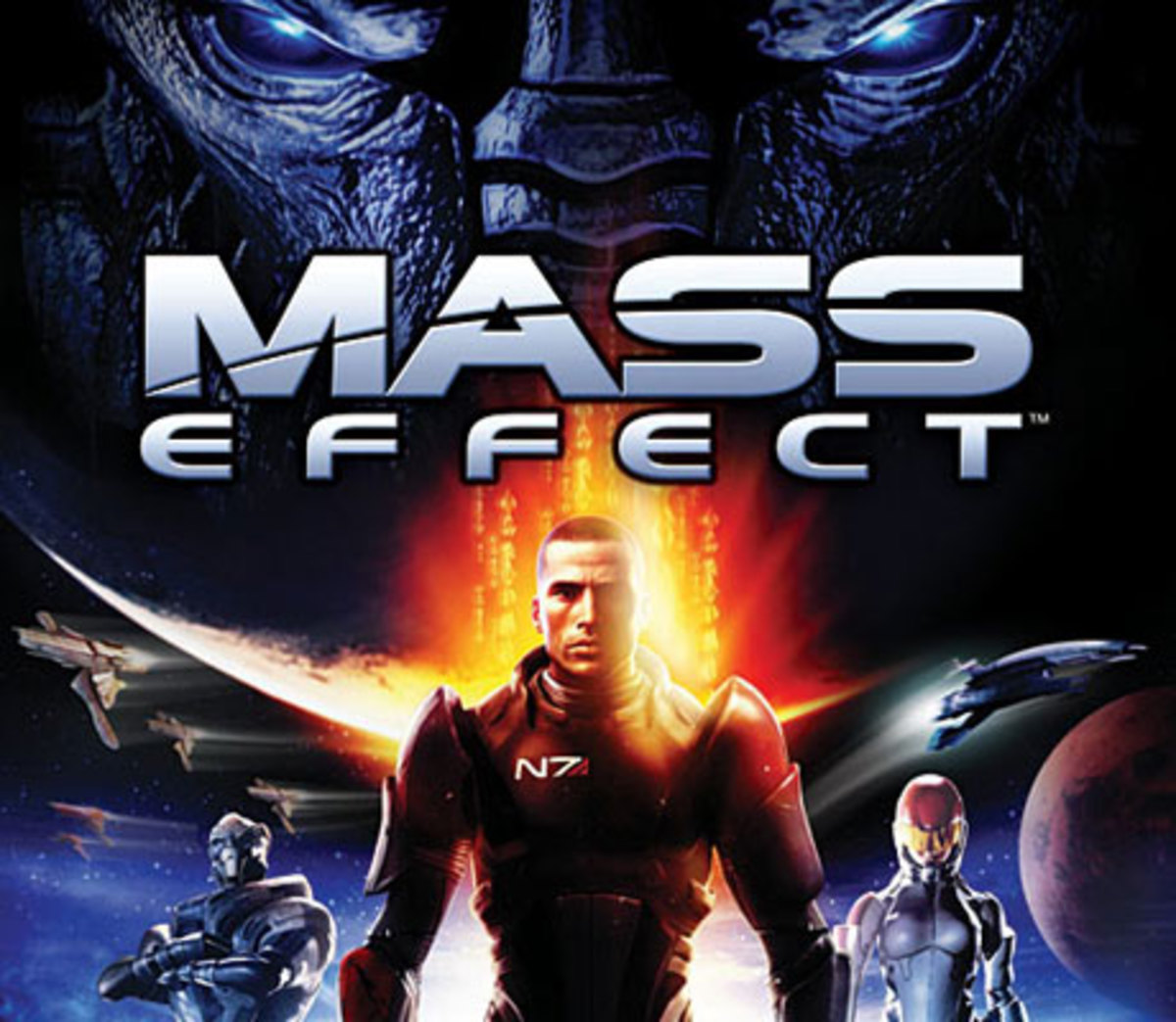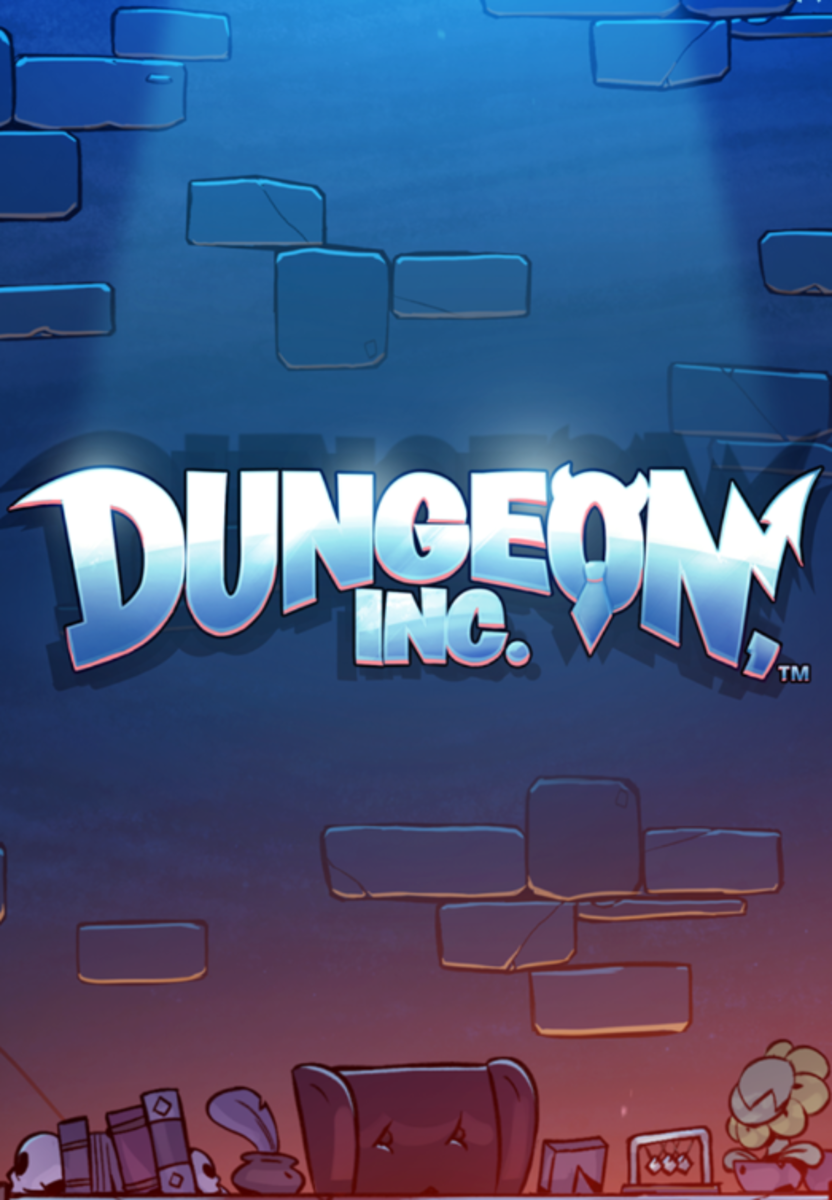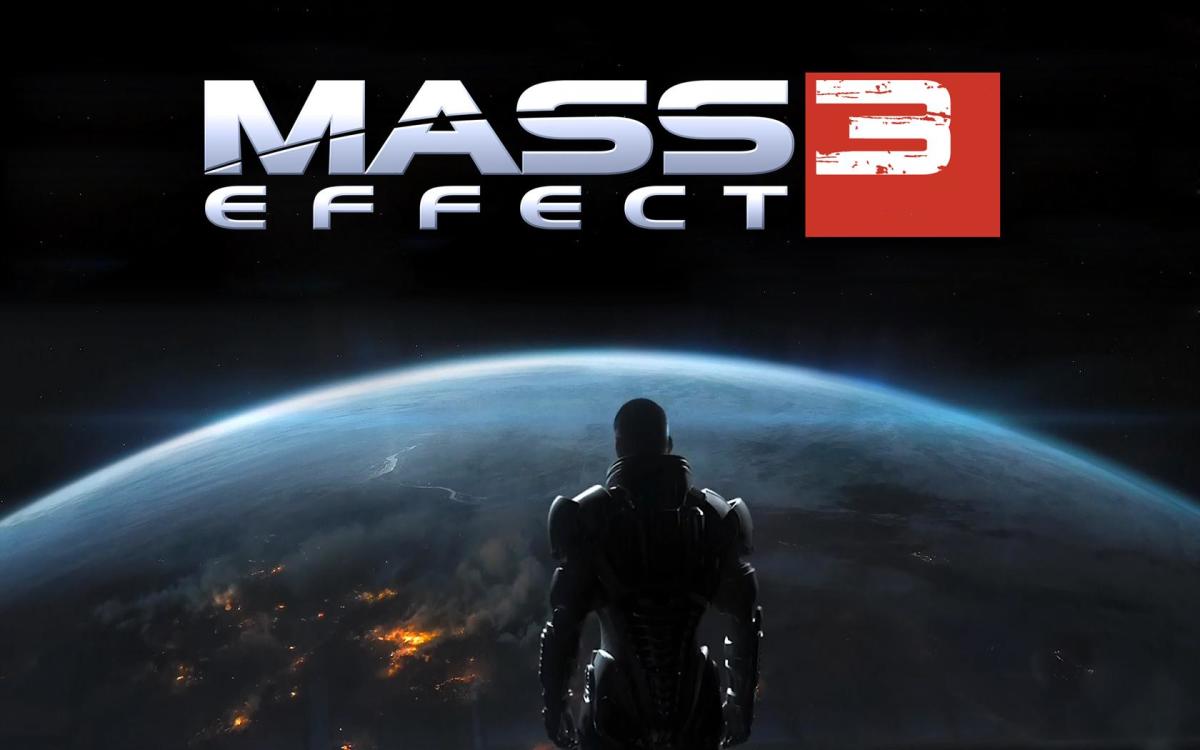- HubPages»
- Games, Toys, and Hobbies»
- Computer & Video Games»
- Roleplaying Video Games»
- Western Roleplaying Video Games
Why Mass Effect 1 is Better Than Mass Effect 2
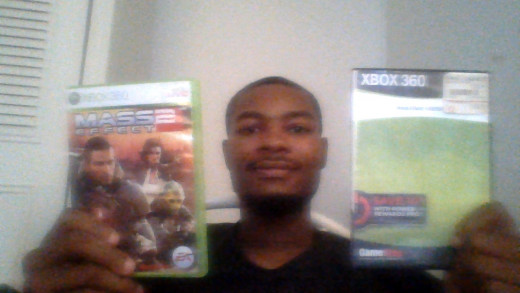
Ask anyone for a list of the best Role-Playing Games (RPGs) released for the Xbox 360, and the Mass Effect series will stand at the apex of that list. In the game, players assume the role of Commander Shepherd to save the galaxy from a race of ancient machines called the Reapers. During his or her adventures, Shepherd must "shepherd" different races of aliens and unique humans together to create a team capable of withstanding anything their gargantuan and resourceful foes can throw at them. Created by the same brain-tank that began the popular Star Wars: Knights of the Old Republic (KotOR) series, Mass Effect continues the great RPG tradition with an abundance of side quests, a diversity of aliens to interact with, engaging characters, a deep, enriching backstory, and a shooter-rpg battle system that never grows stale. Include the Paragon/Rebel morality system, the ability to customize the hero's appearance, and the end of the silent protagonist, and you have one of the greatest RPGs series in the East and West. Unfortunately, like all great games with a great beginning, and eerily similar to the KotOR series where Bioware made its foothold, the sequel fails to match its predecessor. Mass Effect 2 is definitely an excellent game, but misses several key qualities that give Mass Effect higher replay value.
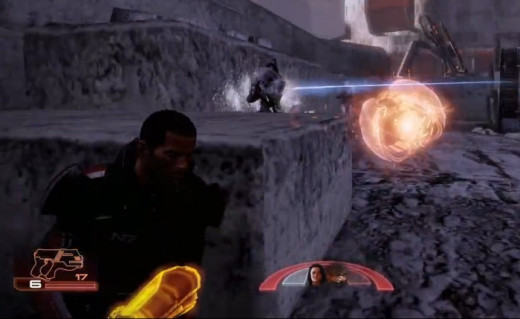
The Limiting of Skills and Battle Powers
Turn-based battle systems becoming nonexistent, upgrading skills separates RPGs from contemporary action games. Players must use the points they gather from leveling-up to enable hacking skills, stronger shields for their Mako tank, for stronger Paragon/Rebel persuasion options, and to deliver more destructive attacks with their weapons. An RPG just isn't about physical player construction, but also about precision skillpoint allocation to enable the gamer to produce a character whom specifically addresses the gamer's needs and wants. In Mass Effect 2, the ability to customize greatly diminishes. Shepherd can now hack into any terminal to gain the treasures or secrets hidden, no matter what class one chooses. The multitude of battle and tech skills presented, which allowed allowed for greater battle options, are also absent. The ability to halt all those annoying Asari biotics? Forget it. The option to overload an enemy weapon to stop rounds from unloading on the player? Gone. The power to upgrade a gun skill to go into a badass shooting frenzy? Not on your life. With the limiting of the variety of skills to upgrade and the limiting of battle powers available in combat, Mass Effect 2 feels more like a shooter with upgradable elements than a RPG with a shooter battle system.
Lower Interactivity with the World
The biggest draw and point of any video game is how the player interacts with the game world, a factor that proceeds story, setting, music, or any other aspect, and Mass Effect astounds by enabling players to interact with a game galaxy rather than just a world. In the series' first sequel, the player can scan planets for natural resources, send probes to gather those resources for upgrades, and if an anomaly is detected, venture to a base on that planet and deliver some butt-kicking. At first glance, this sounds great, but the first game gave the gamer more. One could actually travel on these planets using an all-terrain vehicle, a Mako, find the resources on the planet, enemy bases, objects of interest to the Mass Effect universe, an enemy base, or even a chance encounter with monsters that make tremors resemble pet worms. Braving the planets' snowstorms, volcanic craters, and other worldly hazards made the experience of searching for new worlds exciting and engaging, rather than monotonous and boring as the presented planet probing in the oddly applauded sequel.
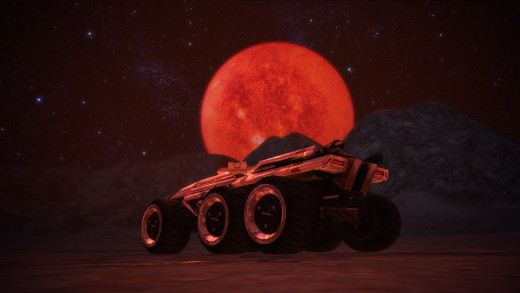
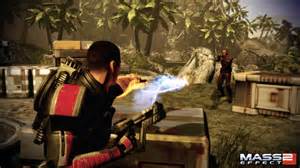
The Unnatural Terrain
The suspension of disbelief in level design becomes weaker in Mass Effect 2. Contradictory to reality, the gamer knows most objects within a video game have a purpose: trees that break to add realism, boxes and canisters that explode to harm an opponent, tall walls which stretch to keep the player-character confined in the sandbox. Mass Effect 2 does well on its level design within the RPG genre, yet the cover provided to defend from enemy attacks appears too often, making the game appear more artificial than it should be. Rocks and boxes lying before the player in conveniently carved rectangles, the player can always see the signs of an impending gunfight. In the first game, jagged rocks, deteriorating structures, and boulders gave protection for outside terrain, while metal partitions and balcony ledges gave cover for inside areas. Sometimes, there was no cover at all. With a level design indicating when enemies will strike, Mass Effect 2 harms its suspension of disbelief greater than its predecessor.
To Conclude
Mass Effect 2 compares to the younger sibling everyone spoils despite its faults. The much praised sequel reduced the upgradable skills and variety of battle powers present in ME1, making it less of an RPG and more of a shooter that has character levels. The planet probing does a poor job in replacing the planet venturing when it comes to interactivity. Finally, the level designs with cookie-cutter cover protection remind the player too often that programmers are the gods of their gaming world. Don't misjudge the writer: Mass Effect 2 is a solid game. More interesting NPCs grace the player's presence, within their own party and out of it, the combat system runs smoother, the quick-time Paragon/Rebel options add spice to the cut scenes, and, of course, seeing the decisions you chose in game one transition to game two is revolutionary. Unfortunately, RPG fans will find themselves more disconnected from the sequel than the original. Just as survival/horror fans complained how the Resident Evil series traveled too far from its roots, Bioware must remember its RPG roots to keep producing games which stand as the epitome of the genre.
